How did 'Free and Open Indo-Hong Kong' become a police state?

by
A British economic magazine on how Hong Kong, which was returned from the United Kingdom to China in July 1997 and has since had a high degree of autonomy under the one country, two systems system , is becoming a police state whose people are monitored by the government and police.・ The Economist discusses based on the interview.
How a free and open Hong Kong became a police state | The Economist
https://www.economist.com/interactive/essay/2022/07/01/how-hong-kong-became-a-police-state
Former journalist Ching Cheong, who moved to Hong Kong with his family in the 1950s when he was only five years old, said of his impression of China from Hong Kong before his return, 'I dreamed of returning to mainland China. He grew up eating the food of a church in Hong Kong, but the dream disappeared when he saw the victims of the Cultural Revolution in Hong Kong in 1966 washed ashore as corpses with their limbs tied up. Many people in Hong Kong remember that the British Marines were recovering the bodies of the victims of the Cultural Revolution. Since then, no one has thought of returning to China. ' talked.
Even after leaving China, the people of Hong Kong, who did not forget that they were Chinese, fostered their identity as Hong Kongers under British rule. However, the turmoil of the Cultural Revolution soon rushed across national borders. The most brilliant event was the case where Mao Zedong supporters set a bomb on the city and killed children playing on the street. By September 1967, a series of terrorist attacks had killed 51 people, 10 of whom were police officers. Many protesters have categorically opposed this and have become more familiar with the police.
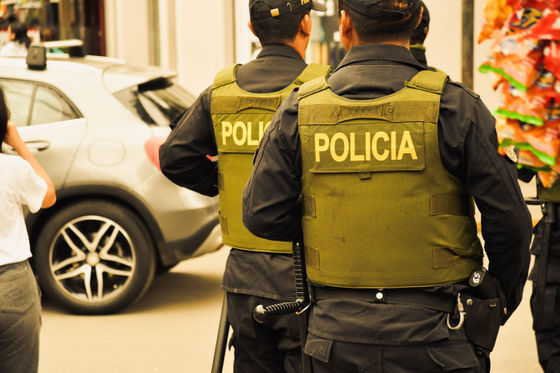
Protests against the turmoil of the Cultural Revolution also raised awareness of social issues and became the basis of protests over the decades that followed. Many of the protests were not in the turmoil of mainland China, but in seeking improvements in education and social services. Following these turmoil, the Hong Kong government began shortening working hours, free compulsory education, building new public housing, and providing basic medical and welfare services in the late 1960s and 1970s.
On the other hand, a system was also established that required police permission for public meetings, but police rarely refused to allow meetings. Hong Kong-based British economist
In this way, Hong Kong, which is by no means a democracy, established a legal system independent of China, strong press freedom, civil freedom and economic freedom.
After graduating from Hong Kong University and becoming a reporter for Bunwaiho , a daily newspaper in Hong Kong, Mr. Chin explained why he joined the company, a newspaper company that is closer to China. I was encouraged by the Chinese Communist Party to create a country that would not be brutalized or dominated by Britain. I was not interested in the ideas of the Communist Party, but I had the opportunity to see different parts of China. I was very excited about it. '
After that, Mr. Chin was the first Hong Kong journalist to move to Beijing in 1981, and in 1989 interviewed students who went to Tiananmen Square in Beijing in search of democratization. Mr. Chin, who spent several weeks with the students who occupied Tiananmen Square and sympathized with the student's demand for democratic reform and eradication of corruption, reported it, but on June 3, when the crackdown began, he returned to Hong Kong. I will be ordered. The next day, the 64th Tiananmen Square Incident occurred.
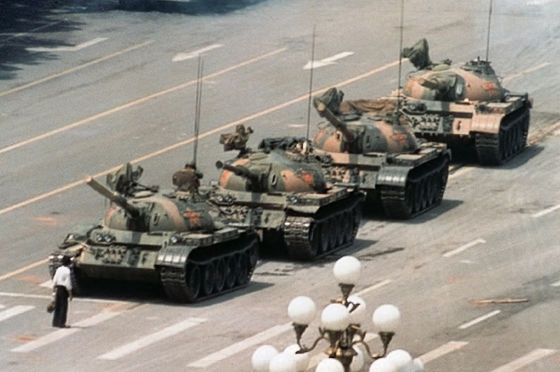
by
The massacre in Beijing has shaken Hong Kong's society. Meanwhile, the United Kingdom, which had signed a one country, two systems agreement with China in 1984, was preparing for the return of Hong Kong in 1997. 'I had a time when I approached the Chinese Communist Party as a reporter for Wen Wei Po, a newspaper company closer to Beijing, so I was familiar with its desires, behaviors, and motives,' said Mr. Chin, who took the opportunity of the Tiananmen Square Incident. He quit Wen Wei Po and wrote an article in the Chinese Newspaper warning that 'the Chinese government will not keep the promise of one country, two systems.'
And the last Hong Kong governor, Christopher Patten , said in a speech on June 30, 1997, about to be returned, 'Hong Kongers run Hong Kong. That is a promise and an unwavering destiny.' Did. However, when it was returned, there was little way for Hong Kongers to participate in Hong Kong politics. Because, despite the election of the executive branch to decide the top of Hong Kong, major political personnel must be approved by the Chinese government, and most of the new executive branches are appointed by the Chinese Communist Party and have business interests in China. Because he was a person.
Hong Kong people vehemently opposed such a regime, and it took root as a 'protest culture' in 2008 when Mr. Chin, who was arrested on suspicion of espionage, spent two years in a Chinese prison and was released. Also, the large-scale protests in 2014, triggered by the Chinese government's refusal to introduce universal suffrage in Hong Kong, later became known as the Umbrella Revolution . The resistance movement, symbolizing the umbrella used to defend against the tear spray used by police, has also been extensively deployed in protests against the 2019 Extradition Ordinance .
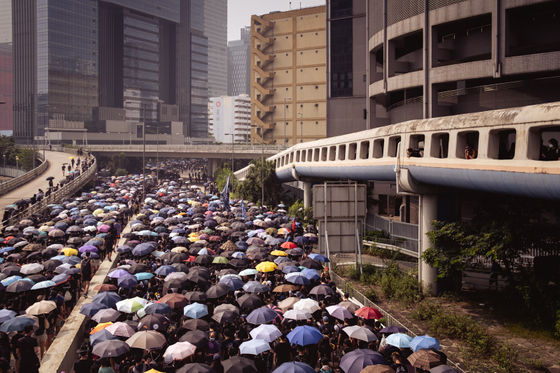
by
Police responded with a strong attitude to the young people in Hong Kong who took the lead in the protest, saying, 'Hong Kongers will be taken to China as criminals at the will of the Chinese government.' Even so, the fugitive ordinance was shelved due to persistent protests, but Chief Executive of Hong Kong, Carrie Lam , said that he was a chief executive of the Chinese Communist Party and did not show a harmonious attitude toward protests. I was still in office.
In May 2020, the Chinese government recognized that the tradition of independence and protests that came from Hong Kong's identity was a threat, based on the lessons learned from this incident. We have issued the Hong Kong National Security Law , which prohibits terrorism. The law was not officially announced until just before it came into effect at 23:00 on June 30, and even Mr. Chung Hayashi did not know the details of the content.
The Hong Kong National Security Act has dramatically strengthened the power of the Hong Kong Police Force, allowing individuals and organizations to be cracked down without judicial oversight. This has left most of Hong Kong's democratic activists in exile abroad or in prison for those who are not. Jimmy Lai , the founder of the liberal Hong Kong daily newspaper Ringo Daily , also known for helping protesters in the Tiananmen Square Incident, was also arrested and imprisoned by police in Hong Kong. One of the activists. The Apple Daily, in which Mr. Rei was arrested and the company's bank account was frozen, was forced to be discontinued even though it was so popular that it was sometimes called 'Hong Kong's four major newspapers' along with China Times. ..
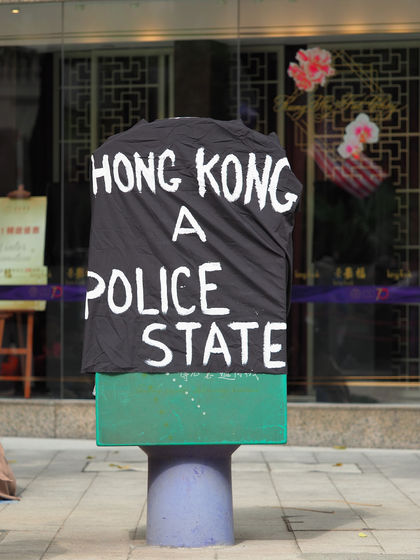
by Etan Liam
The culture of horror and whistleblowing under the Hong Kong National Security Act has permeated government offices, schools, universities and courts, and some teachers who opposed the law have been stripped of their licenses. Also, scholars from global universities in Hong Kong have stopped studying areas of the Chinese Communist Party's sensitive themes, such as Taiwan, Chinese religion, and Hong Kong public opinion. A scholar in Hong Kong said, 'To survive, you have to be a government drummer.' Also, even civilians who do not openly criticize the government will be reported anonymously, so Hong Kong people have had to be nervous and not criticized everywhere in their lives.
In addition, the police, which had a sense of intimacy under British rule, are now regarded as the minions of a powerful government, and the judiciary is no longer trusted. Below is a graph of the results of an awareness survey on the legal framework compiled by the Hong Kong Civil Affairs Institute. The red line is 'rule of law', the gray line is 'court fairness', and the pink line is 'judicial system'. It represents the transition of the evaluation of 'fairness'. Since its return from the United Kingdom, Hong Kong's judiciary and law enforcement agencies have been relatively trusted at 6-7 out of 10 stages, but since 2019, when protests against the Extradition Ordinance have been cracked down. It started to decline and fell sharply in 2020, when the Hong Kong National Security Act came into force.
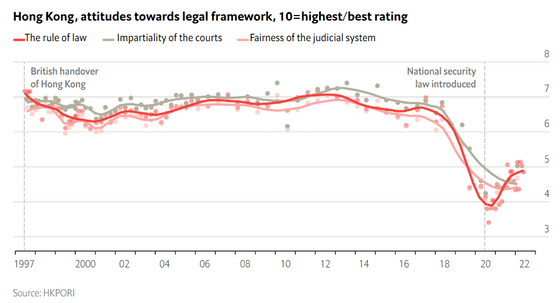
'I knew what would happen, but no one listened,' Chin told The Economist, who had predicted that the Chinese government would break the promise of one country, two systems. did. 'There is an urgent need to listen to warnings that the Chinese government will not keep its promises in every region where China is trying to exert influence,' The Economist said.
Related Posts:
in Note, Posted by log1l_ks







